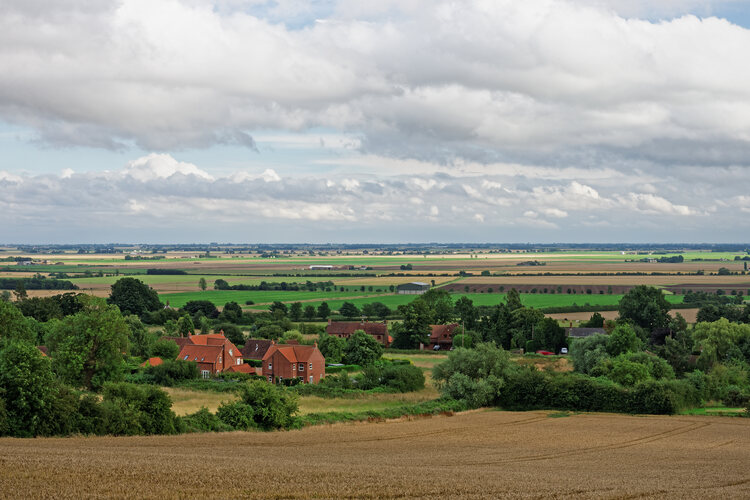
East Anglia’s Fens were once covered with an ancient yew forest which disappeared more than 4,000 years ago
By
The Fens of eastern England are a huge flat – and largely treeless – expanse of farmland, with field after vast field of potato plants stretching off as far as the eye can see. Although it has its charm, many of us would unlikely classify the Fens among Britain’s most beautiful landscapes. And perhaps that shouldn’t come as a surprise, after all, the Fens is a largely manmade landscape.
Prior to the creation of the agricultural landscape you see today, this whole area was one huge swampy marshland, but then, between the 17th and early 19th Centuries, various drainage projects emptied this maze of marshes. This was done to allow farming to take place on the rich peaty soils.
But that peat contained a secret. Every year, as farmers plough the fields in preparation for another growing season, they drag massive tree trunks up out of the peaty depths. These tree trunks, which are mainly from yew trees, can cause damage to farming equipment and so are often piled up on the side of the field. Thanks to the properties of peat, the tree trunks are often incredibly well preserved and although it’s long been known that the dead trees were old, nobody really knew just how old.
Now, a team from the University of Cambridge has made a startling discovery. By taking away some of these piled-up tree trunks to study they have realised that these trees were part of a vast yew and oak forest that covered the Fens thousands of years ago. But then, quite suddenly, the entire forest was wiped out roughly 4,200 years ago. The reason the team from the Cambridge Tree-Ring Unit have concluded is a sudden and dramatic rise in the North Sea that flooded out across the Fens, covering the landscape in salt and killing all of the trees.
What makes the findings particularly interesting is that this sudden rise in water levels in the North Sea coincided with a megadrought in the Middle East, North Africa and China, which may have led to the collapse of some ancient civilisations, including Egypt’s old Kingdom. As Tatiana Bebchuk, the lead author of the report says, ‘Was this a global climate event or was it a series of unrelated regional changes? We don’t yet know what could have caused these climate events, but these trees could be an important part of solving this detective story’.
Who would have thought that a potato field in eastern England might offer clues to the collapse of Egypt’s Old Kingdom?!
Related stories:




